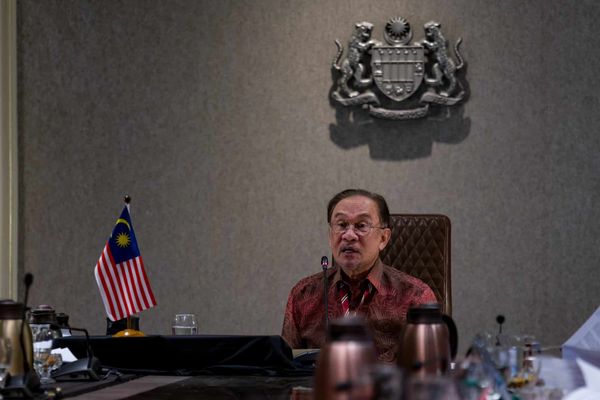By Danial Dzulkifly
SHAH ALAM, May 8 — When Prime Minister Datuk Seri Anwar Ibrahim announced a RM1.5 billion relief package for local exporters on Monday, as part of a broader response to sweeping United States tariffs, it marked clear acknowledgment by the government of the gravity of the crisis.
The response was measured, yet significant. After all, this is the first major economic test for a leader once considered Malaysia’s best finance minister.
Observers, however, are divided on whether the package would be enough to allay concerns, shield Malaysian exporters from the long-term impact of the tariffs, and sustain competitiveness in a shifting global trade landscape.
Economist Samirul Ariff Othman said the injection provides short-term liquidity but does little to transform the longer-term resilience of small and medium enterprises (SMEs).
“The US is Malaysia’s third-largest trading partner, and this tariff could reduce tens of billions in trade value. The RM1.5 billion fund is less than 1 per cent of that,” he told Media Selangor.
Malaysia exported RM199 billion to the US in 2024, with electrical and electronic products accounting for nearly a third of that.
While semiconductors are exempt, downstream firms — often SMEs in electronics, machinery, and consumer goods — stand to lose the most.
“(Anwar’s announcement of) loan guarantees and soft loans help liquidity, but they are still debts, not grants or subsidies. Many SMEs may be reluctant to borrow amid market uncertainty,’’ Samirul said.
[caption id="attachment_399762" align="aligncenter" width="1200"] Prime Minister Datuk Seri Anwar Ibrahim speaks at a special Dewan Rakyat sitting on United States-imposed tariffs, at Parliament, Kuala Lumpur, on May 5, 2025. — Picture via FACEBOOK/ANWAR IBRAHIM[/caption]
Prime Minister Datuk Seri Anwar Ibrahim speaks at a special Dewan Rakyat sitting on United States-imposed tariffs, at Parliament, Kuala Lumpur, on May 5, 2025. — Picture via FACEBOOK/ANWAR IBRAHIM[/caption]
In a special parliamentary session on Monday, Anwar announced a RM1 billion in loan guarantee and RM500 million in soft financing for SMEs most vulnerable to the new 24 per cent US retaliatory tariff — which has since been lowered to 10 per cent, effective April 9, for a 90-day review period.
Amid the economic uncertainty, Anwar’s speech struck a tone of calm.
He challenged the rationale behind the new tariffs, premised on Washington’s claim that Malaysia imposes a 47 per cent tariff on its imports, calling it fundamentally flawed and unfair.
“This (tariff) is based on a simplistic trade deficit ratio, which lacks sound economic basis,” Anwar told Parliament.
He confirmed that talks with US officials, led by Investment, Trade and Industry Minister Datuk Seri Tengku Zafrul Abdul Aziz, have shown early signs of progress, although these are bound by non-disclosure agreements.
Anwar also insisted Malaysia will not compromise on core economic policies, including Bumiputera rights and strategic sector protections.
Yet, some believe the prime minister’s tone may risk antagonising the US.
“Anwar’s approach isn’t humble or cautious enough,” said Oh Ei Sun, principal adviser to the Pacific Research Centre. “He should take a quieter, more pragmatic approach, like Vietnam has done, rather than using rhetoric that could be seen as confrontational.”
Oh warned that Malaysia’s internal political distractions could weaken its position, saying: “Parliamentary posturing is taking precedence over substance. The absence of Economy Minister Rafizi Ramli, reportedly due to intra-party dissatisfaction, doesn’t help optics.”
[caption id="attachment_356385" align="aligncenter" width="1200"] Prime Minister cum Parti Keadilan Rakyat president Datuk Seri Anwar Ibrahim speaks during Keadilan's 25th anniversary at Sentul Depot, Kuala Lumpur, on May 11, 2024. — Picture by BERNAMA[/caption]
Prime Minister cum Parti Keadilan Rakyat president Datuk Seri Anwar Ibrahim speaks during Keadilan's 25th anniversary at Sentul Depot, Kuala Lumpur, on May 11, 2024. — Picture by BERNAMA[/caption]
Rafizi’s one-month leave came under opposition fire during the recent parliamentary sitting, with critics questioning the administration’s unity in the face of escalating trade tensions.
This poses another challenge for Anwar, who must now steer not just economic policy, but political perception.
Rafizi had taken a leave of absence after the recent Parti Keadilan Rakyat polls, with many party bigwigs purportedly in his faction losing to less popular names.
In the broader strategic sense, Anwar pointed to trade diversification — strengthening ties with Asean, China, Japan, and the Gulf — as a longer-term hedge against reliance on Western markets, although implementation takes time.
“Diversifying exports is critical, but Gulf Cooperation Council markets are small and volatile. Asean integration faces its own hurdles. Diversification is essential, but it’s no immediate fix,” said Samirul.
He argued that a multi-pronged strategy is needed, combining trade diplomacy, investment in domestic demand, and productivity upgrades for SMEs to retain global competitiveness.
Oh, meanwhile, dismissed the notion of Asean unity to navigate such crises.
“It’s more myth than reality. There’s little evidence of a cohesive economic front — whether in response to South China Sea tensions or the crisis in Myanmar.”
As Malaysia’s 90-day window under the reduced 10 per cent tariff closes, Anwar is left walking a diplomatic and economic tightrope — firm in tone, cautious in action, and under pressure both abroad and at home.




